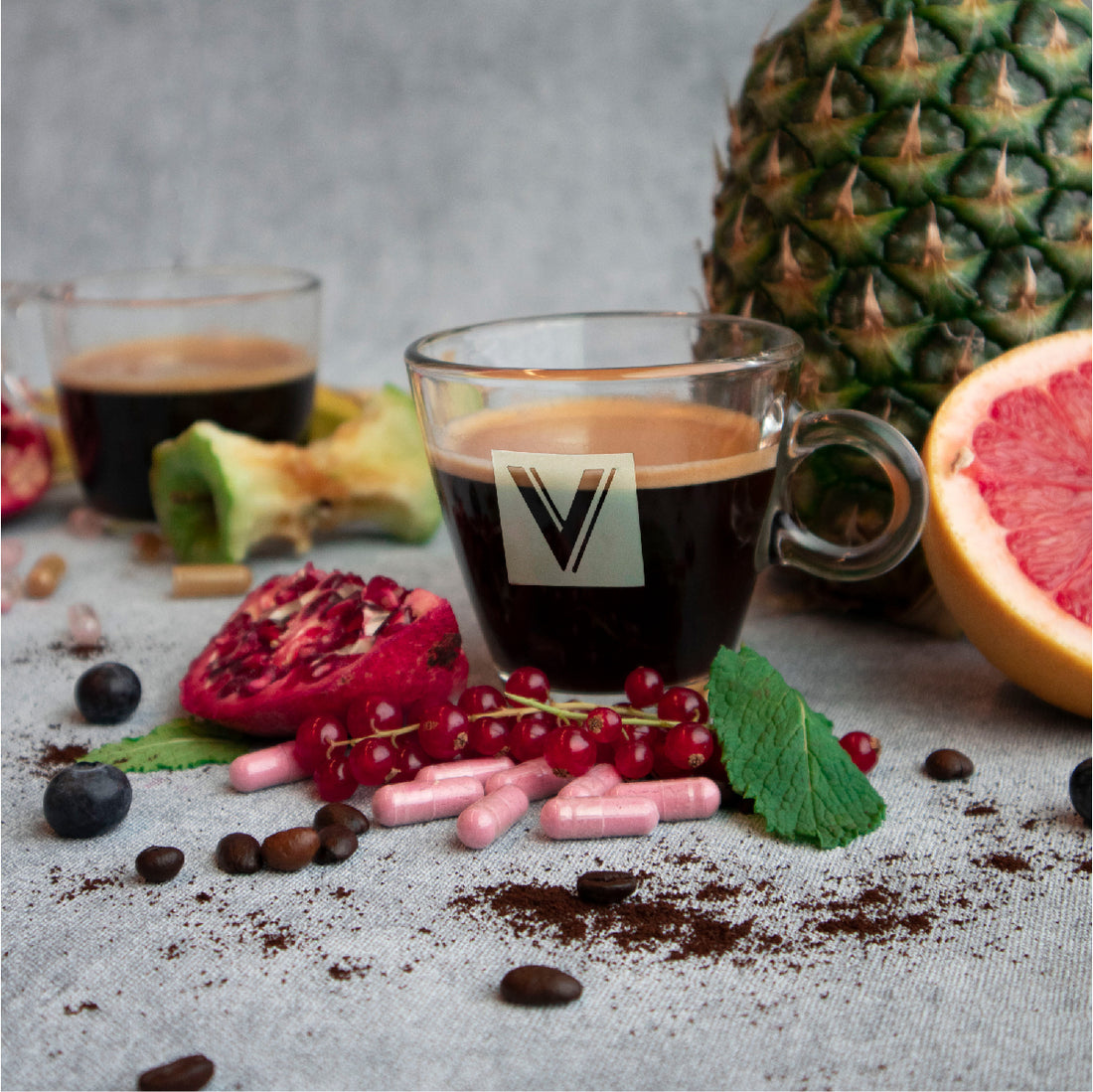"Yay, I'm doing well" are probably the words that swirl through your head when you slide a piece of fruit or nutritional supplement into your giggle in the morning, followed by a cup of coffee.
But, does it make sense to take a piece of fruit or a dietary supplement in combination with caffeine??
The answer to this is very simple:
New.
Caffeine breaks down vitamins. In particularvitamin B andvitamin C. So you can make your meal as healthy as possible, but if caffeine is involved, your food will immediately become less nutritious. So wasted effort.
Vitamin B1 plays an important role in memory.Vitamin B2 On the other hand, it has an indispensable function in metabolism, respiration, healthy growth of skin, hair, nails and the formation of red blood cells.
Vitamin C is an important antioxidant, contributes to a healthy immune system and enhances iron absorption in the intestines. So, you know that again!
How it works?
Caffeine makes you pee a lot. When you urinate a lot, your body loses essential minerals. Also water-soluble vitamins likevitamin C.
In addition to having to pee a lot, caffeine ensures that you do not absorb certain vitamins and minerals at all. This mainly happens with iron andvitamin D. The more caffeine you drink, the more vitamin D absorption is prevented.
Another case of wasted effort.
Which vitamins are in which types of food?
Vitamin C is mainly found in fruits, vegetables and potatoes. Below is a global overview of types of fruit that you probably eat during your breakfast or put it in the blender for a delicious smoothie (Vitakruid, 2021).
- acerola (1700 milligrams per 100 grams)
- guava(228 milligrams per 100 grams)
- Black berries(150 milligrams per 100 grams)
- Kiwi(79 milligrams per 100 grams)
- strawberries(64 milligrams per 100 grams)
- Papaya(61 milligrams per 100 grams)
- Orange(50 milligrams per 100 grams)
- Lemon lime(45 milligrams per 100 grams)
- Grapefruit(45 milligrams per 100 grams)
- tangerine(40 milligrams per 100 grams)
Are you a fan of a healthy salad Then the vegetables listed below will probably sound familiar to you ((PS. food & lifestyle, 2020).
- Brussels sprouts (150 milligrams per 100 grams)
- Kale(100 milligrams per 100 grams)
- Green pepper(71 milligrams per 100 grams)
- Red cabbage(60 milligrams per 100 grams)
- Cress(50 milligrams per 100 grams)
- Broccoli(47 milligrams per 100 grams)
- Oxheart cabbage(36 milligrams per 100 grams)
- Swiss chard (35 milligrams per 100 grams)
- Green cabbage(30 milligrams per 100 grams)
Just like vitamin C, vitamin B is also found in potatoes and vegetables, but also in brown bread, grain products, fish, meat, dairy products and nuts.
So, why is Verum a good choice?
Verum, on the other hand, is rich in vitamins and caffeine-free. Win win! And the energy boost You experience thanks to the superfood EnXtraTM. This powder comes from the Alpinia Galanga and provides the 4-5 hour caffeine kick you're looking for..
That 'good' morning can really start now!
